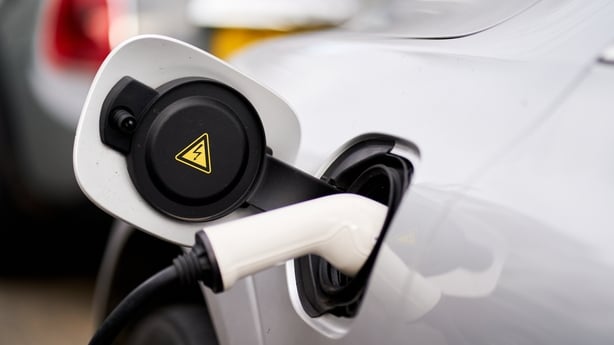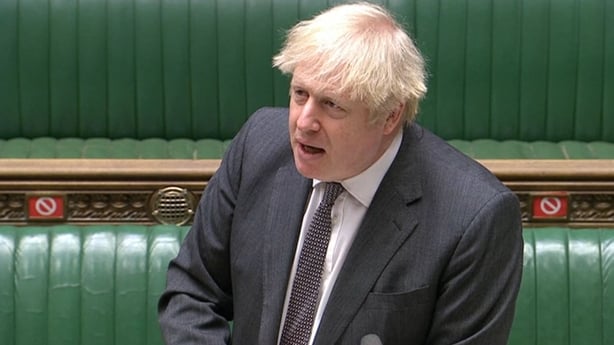British Prime Minister Rishi Sunak has insisted he is acting to avoid a public "backlash" by watering down efforts to tackle the climate crisis.
The announcement has drawn fierce criticism from green-minded members of the Conservative Party, environmentalists and industry figures.
In a speech in London, Mr Sunak announced a major U-turn by delaying a ban on new fossil fuel cars by five years as he claimed his raft of changes was "not about the politics".
He weakened plans to strip out polluting gas and oil boilers and scrapped policies forcing landlords to upgrade the energy efficiency of homes.
Mr Sunak insisted the UK was already ahead of allies in reducing emissions and could not impose "unacceptable costs" on British families.
"The risk here to those of us who care about reaching net zero, as I do, is simple: if we continue down this path we risk losing the consent of the British people.
"The resulting backlash would not just be against specific policies but against the wider mission itself, meaning we might never achieve our goal."
Mr Sunak insisted he was standing by the legally binding goal of hitting net zero by 2050 despite making changes including:
- Delaying the ban on new cars and vans running solely on petrol and diesel from 2030 to 2035.
- Weakening the plan to phase out gas boilers from 2035 so households that will struggle the most to switch to heat pumps will not have to make the switch.
- Putting back the ban on boilers relying on heating oil in off-grid homes from 2026 to 2035.
- Scrapping the requirement of energy efficiency upgrades to homes.
The Labour Party pledged to retain the 2030 target for electric cars if it wins the next general election.

Polling has suggested that Britons support measures to tackle climate change but the balance shifts when asked their opinion if such actions dealt a blow to their personal finances.
Mr Sunak's cancelling of requirements to upgrade tenants’ homes alone could, however, cost British households nearly £8 billion (€9.3bn) in higher bills over the next decade, according to researchers at the non-profit Energy and Climate Intelligence Unit.
He detailed the plans to the public after putting them to government ministers in a hastily arranged call in response to a leak of his net-zero plans to the BBC.
Speaking from Leinster House, Mr Sunak claimed previous governments – both Conservative and Labour – had sought to get to net zero "simply by wishing it".
He insisted he was taking a "more pragmatic, proportionate and realistic approach that eases the burdens on families" and said he believes the move will command "broad support" in time.
Mr Sunak forged ahead with weakening the approach despite staunch criticism from climate campaigners, the car industry and former prime minister Boris Johnson.

The plans were welcomed by other Conservatives who, believing it may be popular with voters, have been calling for green policies to be delayed to avoid exacerbating the cost of living.
Mr Johnson, who introduced green policies including the car ban while in office, warned that "business must have certainty about our net zero commitments".
He urged Mr Sunak not "to falter now or in any way lose our ambition for this country".
The policy change also alarmed the car industry, which has invested on the basis of a 2030 shift away from petrol and diesel.
Read more:
Key points on UK changes to emissions reduction targets
Latest climate change stories
Alok Sharma, who was president of the Cop26 climate summit, told BBC Radio 4’s Today programme: "I think it’d be incredibly damaging for business confidence, for inward investment, if the political consensus that we have forged in our country on the environment and climate action is fractured.
"Frankly, I really do not believe that it’s going to help any political party electorally which chooses to go down this path."
Prominent Conservative Party environmentalist Zac Goldsmith went as far as to demand a general election over the "economically and ecologically illiterate decision".
But Jacob Rees-Mogg, who served in Mr Johnson’s cabinet, called the former prime minister a "net zero zealot" and backed Mr Sunak.
The Conservatives’ narrow success in this year's Uxbridge and South Ruislip by-election, won largely through a campaign against the expansion of the ultra-low emission zone in London, bolstered calls to shun unpopular green policies.


